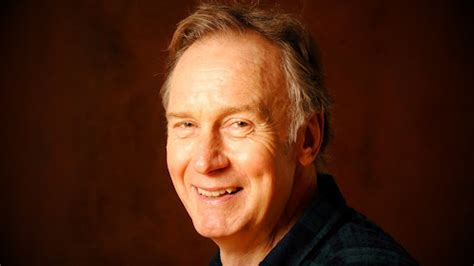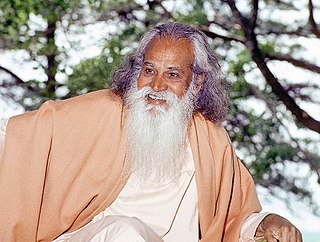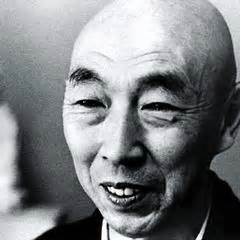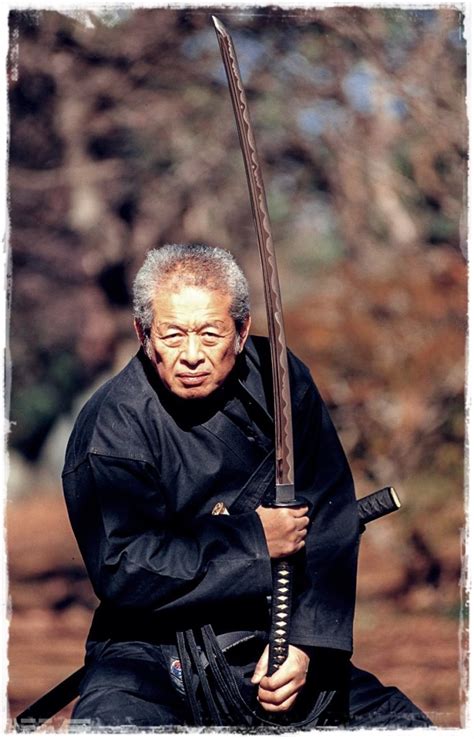Top 1127 Zen Buddhism Quotes & Sayings - Page 17
Explore popular Zen Buddhism quotes.
Last updated on April 22, 2025.
I don't think my competition is with the heroes. I don't think I'm competing with anyone. I don't mean to sound Zen, but genuinely, when I stopped competing with anything is when I started enjoying my work, and that brought out the best in me. I'm living in a universe of my own, and I'm enjoying that. I love to appreciate other people's work.
All the other religions I had ever read about dealt with the idea of God, and your relationship with God. Buddhism is the only religion that deals with man himself and the nature of the mind - how to deal with yourself and your condition, here and now, as opposed to having to deal with something outside yourself.
I think oysters are more beautiful than any religion,' he resumed presently. 'They not only forgive our unkindness to them; they justify it, they incite us to go on being perfectly horrid to them. Once they arrive at the supper-table they seem to enter thoroughly into the spirit of the thing. There's nothing in Christianity or Buddhism that quite matches the sympathetic unselfishness of an oyster.
Buddhism doesn't promise to fulfill our desires. Instead it says, 'You feel unfulfilled? That's okay. That's normal. Everybody feels unfulfilled. You will always feel unfulfilled. There is no problem with feeling unfulfilled. In fact, if you learn to see it the right way, that very lack of fulfillment is the greatest thing you can ever experience.' This is the realistic outlook.
Regardless of what you want to call it, guys need some type of spirituality they can grab onto. If it's Christianity, which is a very structured approach, or if it's something that's a little more open-ended... like, Zen's something you can make yourself a part of. You can interpret it for yourself, like Taoism and stuff like that.
Do not do that again," he said stiffly. "Don't kiss me back then," I retorted. He stared at me for what seemed like forever. "I don't give 'Zen lessons' to hear myself talk. I don't give them because you're another student. I'm doing this to teach you control." "You're doing a great job," I said bitterly.
A friend of mine told me a bunch of stuff on Buddhism and about Avicii being the lowest level of Buddhist hell, and it just sort of got stuck in my head. Later on when I went to setup a MySpace, I tried a bunch of names and they were all taken so I just kind of ended up with Avicii and then I got really attached to it.
To observe and watch one's own mind is something really interesting. The untrained mind will run and follow its old habit patterns. Because it has not been trained and taught, it will get lost in all kinds of stories and issues. Therefore we have to train our mind. The meditation practice in Buddhism is all about training one's own mind.
It’s interesting to look at your children as line-in Zen masters who can put their finger on places where you’re resistant, or thinking narrowly, in ways noone else can. You can either lose your mind and your authenticity in the process of reacting to all that stuff, or you can use it as the perfect opportunity to grow and nourish your children by attending to what is deepest and best in them and in yourself.
If you were going to be attracted to a mystical faith which involved the contemplative life, Buddhism would be quite reasonable. But then, not everybody is a budding mystic. In fact, it's pretty certain that very few people are. So another kind of religion, one that was perhaps more pragmatic and service-oriented, might appeal to those others. So I think you have to take your values into account.
Buddhism is the most active one! The whole time, we're dealing with the mind and how to tame it, and how to transcend our ordinary conventional mind. This takes an enormous amount of determination and perseverance. It also requires an attitude of being relaxed and spacious, rather than tense and stressed. It's certainly not a matter of lying back and expecting it all to happen. If we don't make it happen, it won't!
Buddha was speaking about reality. Reality may be one, in its deepest essence, but Buddha also stated that all propositions about reality are only contingent. Reality is devoid of any intrinsic identity that can be captured by any one single proposition - that is what Buddha meant by "voidness." Therefore, Buddhism strongly discourages blind faith and fanaticism.
Sometimes you have a flash of insight, but it's not strong enough to survive. Therefore in the practice of Buddhism, samadhi is the power to maintain insight alive in every moment, so that every speech, every word, every act will bear the nature of that insight. It is a question of cleaning. And you clean better if you are surrounded by those who are practicing exactly the same.
Buddha wrote a code which he said would be useful to guide men in darkness, but he never claimed to be the Light of the world. Buddhism was born with a disgust for the world, when a prince's son deserted his wife and child, turning from the pleasures of existence to the problems of existence. Burnt by the fires of the world, and already weary with it, Buddha turned to ethics.
That is a goal, to step out on stage and to actually be present. Honestly alive and present. Although, it doesn't always happen. We're fallible, we're imperfect. That's what a lot of books are written about; that's what a lot of religions have sought after is that kind of zen mentality of just being totally neutral and open and vulnerable to all of the forces in the universe without being attached to them.
The Tibetan religion has a past. And furthermore it has such an appeal. There again young people today are drawn to Buddhism and to Tibet. It's not only because of the Dalai Lama. It's because of what Tibet represents. There is a vast reservoir of knowledge, of mystical knowledge, which can be found in Tibet.The Chinese shouldn't be afraid of that really. They have other means of survival.
If Zen is approached with the usual mental attitude, it will seem quite incomprehensible. Our average Western intellectuality would consider its paradoxical language simply as a play upon words. Its full significance is revealed only when we approach it in a different manner, making our minds available to the new processes of inner perception which it suggests.
Christianity teaches that, contra fatalism, suffering is overwhelming; contra Buddhism, suffering is real; contra karma, suffering is often unfair; but contra secularism, suffering is meaningful. There is a purpose to it, and if faced rightly, it can drive us like a nail deep into the love of God and into more stability and spiritual power than you can imagine.
Buddhism holds that everything is in constant flux. Thus the question is whether we are to accept change passively and be swept away by it or whether we are to take the lead and create positive changes on our own initiative. While conservatism and self-protection might be likened to winter, night, and death, the spirit of pioneering and attempting to realize ideals evokes images of spring, morning, and birth.
I tried Zen and Ching, numerology, tarot cards and astrology. I tried to look back into the Bible, and could not find anything. At this time I did not know anything about Islam, and then, what I regarded as a miracle occurred. My brother had visited the mosque in Jerusalem, and was greatly impressed that while on the one hand it throbbed with life.
The five points of yama, together with the five points of niyama, remind us of the Ten Commandments of the Christtian and Jewish faiths, as well as of the ten virtues of Buddhism. In fact, there is no religion without these moral or ethical codes. All spiritual life should be based on these things. They are the foundation stones without which we can never build anything lasting. (127)
Buddhist nirvana ... is based on egolessness and is not anthropocentric but rather cosmological. In Buddhism, humans and the things of the universe are equally subject to change, equally subject to transitoriness or transmigration. A person cannot achieve emancipation from the cycle of birth and death until he or she can eliminate a more universal problem: the transience common to all things in the universe.
So, my unsolicited advice to women in the workplace is this. When faced with sexism, or ageism, or lookism, or even really aggressive Buddhism, ask yourself the following question: “Is this person in between me and what I want to do?” If the answer is no, ignore it and move on. Your energy is better used doing your work and outpacing people that way. Then, when you’re in charge, don’t hire the people who were jerky to you.
Essentially Satori is a sudden experience, and it is often described as a "turning over" of the mind, just as a pair of scales will suddenly turn over when a sufficient amount of material has been poured into one pan to overbalance the weight in the other. Hence it is an experience which generally occurs after a long and concentrated effort to discover the meaning of Zen.
On the philosophical level, both Buddhism and modern science share a deep suspicion of any notion of absolutes, whether conceptualize as a transcendent being, as an eternal, unchanging principle such as soul, or as a fundamental substratum of reality. ... In the Buddhist investigation of reality, at least in principle, empirical evidence should triumph over scriptural authority, no matter how deeply venerated a scripture may be.
You know the Zen question, 'The Bodhisattva of Great Mercy' has a thousand hands and a thousand eyes; 'which is the true eye?' I could not understand this for a long time. But the other day, when I looked at the pine trees bending before the cold blasts from the mountain, I suddenly realized the meaning. You see, all the boughs, branches, twigs, and leaves simultaneously bend to the wind with tremendous vigor.
I can pinpoint the moment when my first band recorded, when I was 14 and 15 years old. I always enjoyed writing songs and playing, but there was something about going in and capturing it that felt very Zen and perfect for me. A light switch went on and I just realized that's where my musical capacity was the most suited. I just followed on blind faith that that was like a calling for me.
Really, whatever I was seeking and looking into in those days like creative arts, chant, the muse being in touch with the muse for poetry and writing and music. It's all part of the spirit and if we look particularly at Hinduism and Buddhism, the tantric stream of those traditions totally embraces all aspects of human life and life on this world.
And as I stumbled onto Eastern philosophy and Buddhism, it was the first time I had ever read any sort of philosophy that really made a tremendous amount of sense. What I liked that was missing from my experience of Christianity growing up was a sort of acceptance, a sort of being OK with being imperfect and not focusing on the sin.
On these matters of specific fact, like is the mushroom an extraterrestrial and that sort of thing, I haven't the faintest idea. The mushroom itself is such a mercurial, elusive, Zen sort of personality that I never believe a word it says. I simply entertain its notions and try and sort through them, and I found that to be the most enriching approach to it.
The first of the four noble truths of Buddhism, that there is suffering in life, was enormously important to me. No one had ever said it out loud. That had been my experience, of course, but no one had ever talked about it. I didn't know what to do with all the fear and emotions within, and here was the Buddha saying this truth right out loud.
In Buddhism, there are three gems: Buddha, the awakened one; Dharma,
the way of understanding and loving; and Sangha, the community that
lives in harmony and awareness. The three are interrelated, and at
times it is hard to distinguish one from another. In everyone there
is the capacity to wake up, to understand, and to love. So in
ourselves we find Buddha, and we also find Dharma and Sangha.
When we seek happiness through accumulation, either outside of ourselves-from other people, relationships, or material goods-or from our own self-development, we are missing the essential point. In either case we are trying to find completion. But according to Buddhism, such a strategy is doomed. Completion comes not from adding another piece to ourselves but from surrendering our ideas of perfection.
One of the happier ironies of recent history is that even as Tibet is being wiped off the map in Tibet itself, here it is in California, in Switzerland, in Japan. All over the world, Tibetan Buddhism is now part of the neighborhood. In 1968, there were two Tibetan Buddhist centers in the West. By 2000, there were 40 in New York alone.
Western progress (from one damned thing to another) seems to be essentially the MO of nowhere fast. But, on the other hand, the don't-set-foot-outside-your-own-village/cave ideal or injunction that you find in Buddhism and even in the Daoism of which I'm fonder, seems . . . defeatist. And more than that, it is in contradiction to what nature actually does. Somewhere, somehow, I feel as if these two opposing principles have to be reconciled.
We took a bus to the nearby monastery of one of the last great Tang dynasty Chan masters, Yun-men. Yun-men was known for his pithy 'one word' Zen. When asked 'What is the highest teaching of the Buddha?' he replied: 'An appropriate statement.' On another occasion, he answered: 'Cake.' I admired his directness.
The future is just your hope, expectation. And when this life is not fulfilling you start looking further, beyond death. All these are fictions just for you to survive somehow. But this survival is not how you are supposed to be. Existence has not given you birth just to live in hopes. You can be really ecstatic this moment, and there is no other moment. Meditation is, Zen is living now and here.
All the time. A few months ago I came really close to losing it, I was getting really paranoid. And then I started a new job, things fixed themselves. I can't turn my back on the situation and ignore it. If tomorrow I say: "Okay, I've had enough, we're stopping everything" it won't change anything. Might as well try to accept it and stay zen as I have no control over it.
There was a famous Zen master whom people would seek out to become enlightened. He was strict and would occupy people with things having nothing to do with seeking enlightenment. You see, that is the only way to achieve enlightenment; by not focusing on achieving it. Then, one day it will just come to you.
When people ask the Dalai Lama, "Is Buddhism a religion?" he answers, "Yes, it is." Then they ask, "What kind of religion is it?" He responds, "My religion is kindness." You might think, "Everyone's is." Everyone's is. That's true. It's not complicated to describe the goal of a spiritual life. It's easier than you think to explain it. It's more difficult than you can imagine to do it.
You don't simply tell someone to get out there and win the tennis match. You say 'move your feet' or 'watch the fuzz on the ball' to really get into the Zen of it. You pull all that together, and then you just might hold up the Wimbledon Plate... It's not about winning first place but bringing every element of effort to whatever you do.
One view of photography is that it is a zen-like act which captures reality with its pants down - so that the vital click shows the anatomy bare. In this, the photographer is invisible but essential. A computer releasing the shutter would always miss the special moment that the human sensibility can register. For this work, the photographer's instinct is his aid, his personality a hindrance.

















































